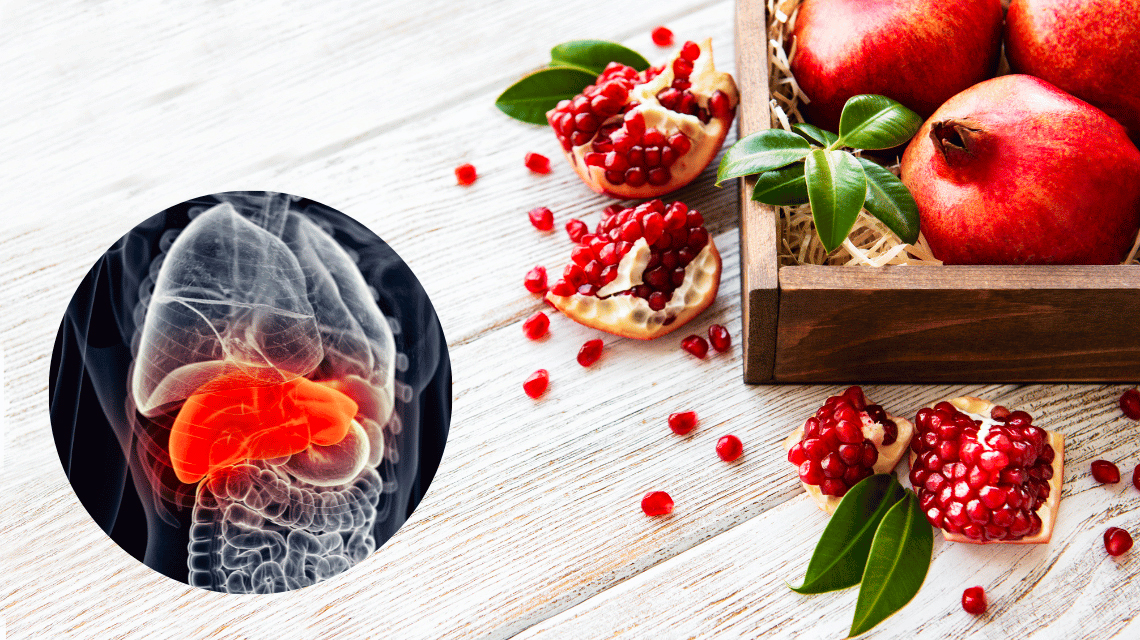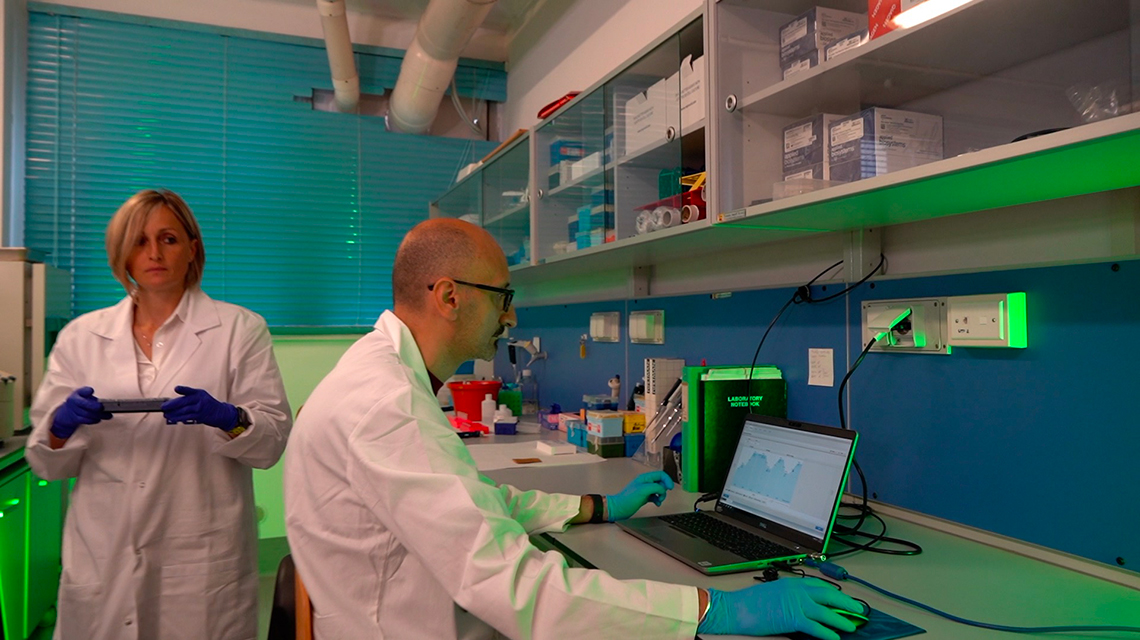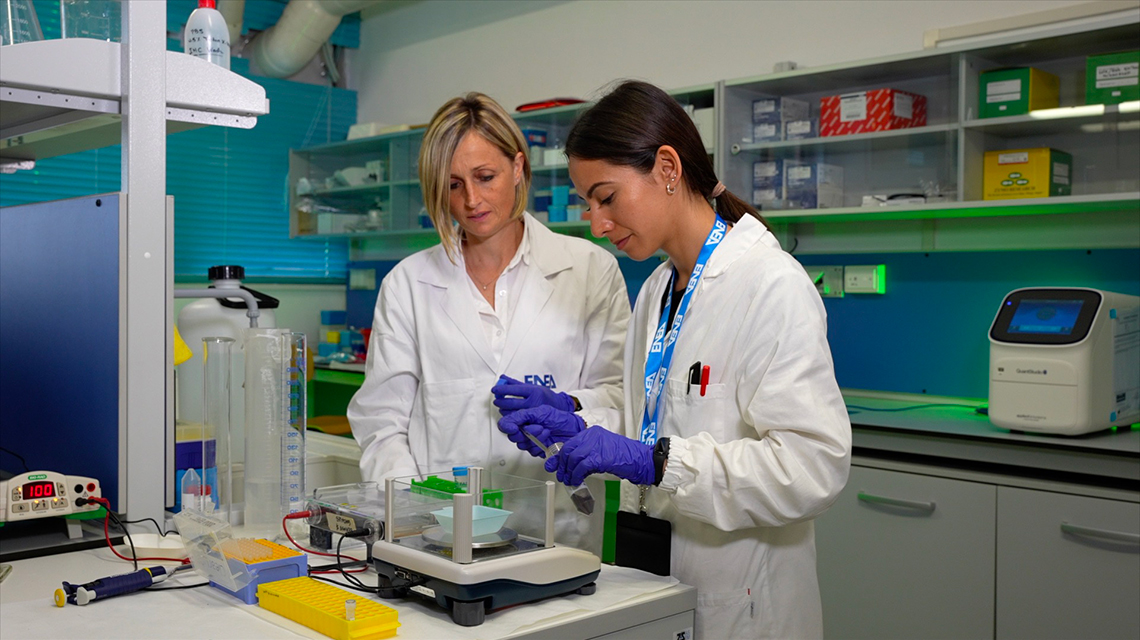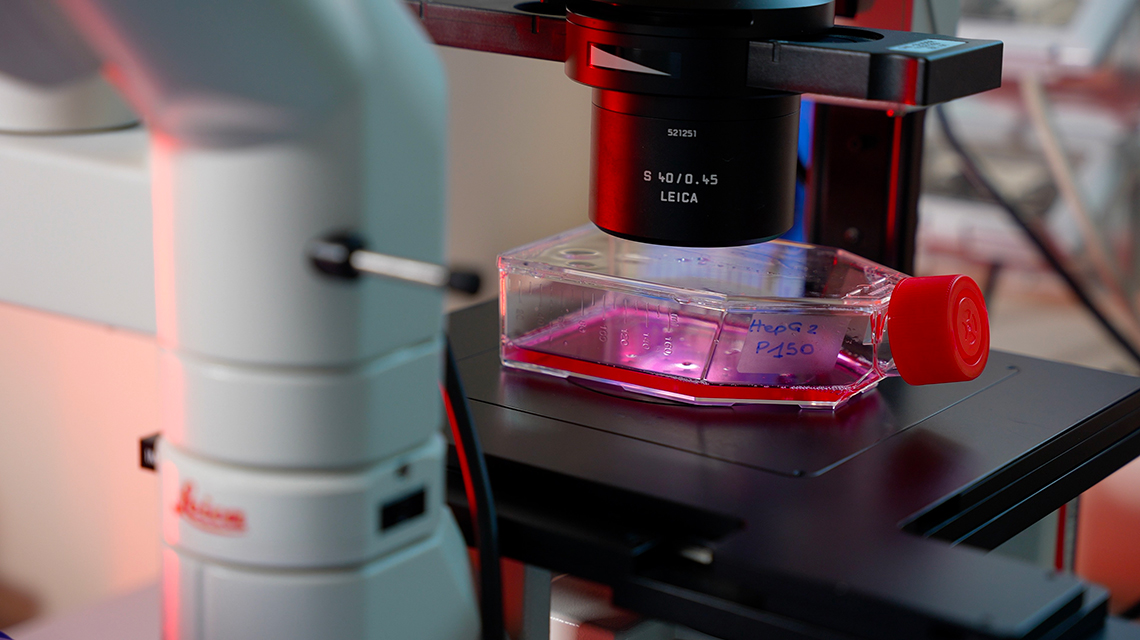Italian National Agency for New Technologies, Energy and Sustainable Economic Development

Health: Beneficial effects on the liver from pomegranate
A study conducted by ENEA showed a potential anti-inflammatory effect on the liver by some molecules contained in pomegranate. Published on the international journal “Natural Product Research” and funded by the Italian nutraceutical company Esserre Pharma, it investigated the beneficial effects of some substances contained in large quantities in red grains (arils), in the peel and internal membranes of the fruit.
“The first in vitro analyses showed a significant anti-inflammatory activity of pomegranate extract in human liver cells; the active substances contained in the fruit can inhibit production and release of specific molecules involved in the inflammatory response and responsible for liver damage”, explained Barbara Benassi, head of the ENEA Health and Environment Laboratory and co-author of the experimental study with Maria Pierdomenico (ENEA) and Costanza Riccioni of Esserre Pharma.
The pomegranate (Punica granatum L.) is a fruit tree highly adaptable to a wide range of climatic and soil conditions; it is native to Iran, but it’s currently grown in many regions of the world, including Italy. Its production and consumption have increased over time due to its many health-related properties, so much so as to be regarded as a new superfood. Pomegranate fruits are a great source of bioactive molecules like polyphenols and polyunsaturated fatty acids, which have an anti-inflammatory, antidiabetic, antioxidant, antimicrobial and antitumor action in different cancer types.
“Although most of these effects have been demonstrated and proven by experiments based on seeds and fresh fruit juices, our study wants to enhance the role of molecules present in the peel and internal membranes and their beneficial effects in liver inflammation, which is still little studied” pointed out Benassi.
Pathogenic microorganisms and bacterial byproducts coming from the intestine through the portal vein, the blood vessel that carries blood from the intestine into the liver, specifically target the liver. A typical example is the endotoxin LPS (LipoPolySaccharide), a toxic related to the cellular structures of some bacteria. “In our in vitro experiments we first induced an inflammatory response in liver cells, using LPS endotoxin stimulation; then we administered pomegranate extract at a concentration of 1 microgram per milliliter. The result was very encouraging: the extract reduced the risk of inflammation and, consequently, of liver damage,” explained Benassi. “From these first findings we hypothesize that the biomolecule responsible for the anti-inflammatory action shown in the laboratory is punicalagin, the most abundant polyphenol present in fruit extract and waste”, said Barbara Benassi.
“The ENEA Health and Environment Laboratory is actively working to evaluate and demonstrate the biological activity of the extracts of some Mediterranean fruits. Determining the anti-inflammatory properties of the pomegranate fruit extract will lay the foundations for the development of a new line of nutraceutical products to support various body functions and the immune system", concluded Costanza Riccioni, head of the Research and Development activities at Esserre Pharma.



